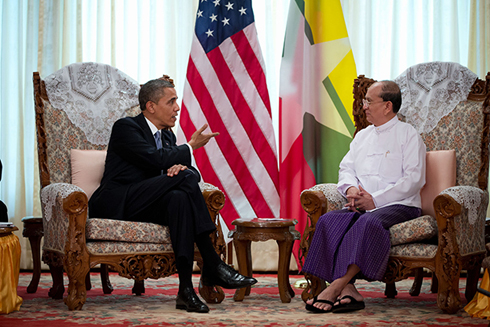
نيودلهي ــ إن أول زيارة يقوم بها الرئيس باراك أوباما منذ فوزه بولاية ثانية تسلط الضوء على محورية آسيا الجديدة بالنسبة لاقتصاد أميركا وأمنها. ولكن جولة أوباما في آسيا أكدت أيضاً على التساؤل الرئيسي حول السياسة الأميركية في المنطقة: هل يكتسب “محور” آسيا الأميركي الجديد مضموناً استراتيجياً ملموسا، أم أنه سيظل إلى حد كبير مجرد إعادة ترتيب خطابية لسياسات قديمة؟
إن الولايات المتحدة، التي سارعت إلى الاستفادة من المخاوف الإقليمية التي أثارها تأكيد الصين لذاتها واستعراض عضلاتها على نحو متزايد، عملت على توثيق علاقاتها العسكرية بحلفائها الحاليين في آسيا وصياغة علاقات أمنية مع أصدقاء جدد. ولكن الوهج المسكر لعودة أميركا إلى الصدارة في آسيا كان سبباً في حجب التحديات الرئيسية التي تواجهها في محاولة البقاء باعتبارها المرتكز الأمني الأساسي للمنطقة في مواجهة الطموحات الصينية الاستراتيجية.
